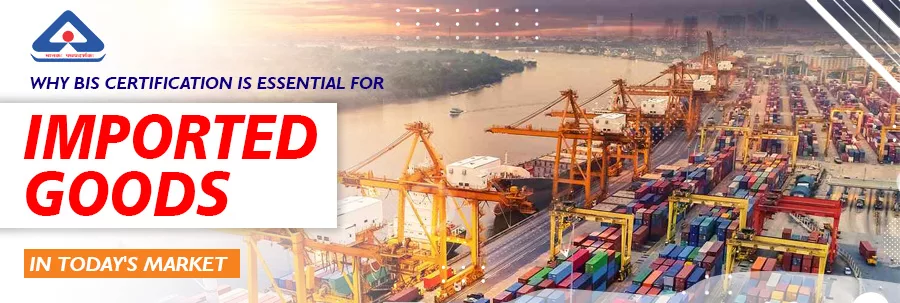In today’s global market, the import and export of goods have become commonplace. However, ensuring the quality and safety of these goods is of utmost importance. This is where BIS certification comes into play. BIS certification, or Bureau of Indian Standards certification, is a mandatory requirement for several products imported into India. In this blog, we will discuss why BIS certification is essential for imported goods in today’s market, the benefits of obtaining BIS certification, the certification process, industries requiring BIS certification, and the challenges faced in obtaining BIS certification.
Benefits of BIS Certification
BIS certification ensures that the product meets Indian quality and safety standards, reducing the risk of harm to the end-users. It ensures that the product has undergone stringent testing and is fit for use. It is a mandatory requirement for several products imported into India. Obtaining BIS certification facilitates the import-export process, ensuring that the product meets the necessary standards and regulations, and expediting the clearance process.
BIS certification demonstrates a commitment to quality and safety, building trust and confidence in the brand among Indian consumers. It enhances the brand’s reputation and improves its marketability. It also ensures that the product meets Indian standards, enabling it to compete with domestic products. It provides a level playing field, allowing imported products to compete on equal terms with domestic products.
Overall, BIS certification consultant provides a competitive advantage in the Indian market, demonstrating a commitment to quality and safety and building trust among consumers.
BIS Certification Process
Application: The first step in obtaining BIS certification is to submit an application to the BIS. The application should include all relevant details about the product, such as technical specifications, the intended use, and the manufacturing process.
Testing: Once the application is submitted, the product is subjected to extensive testing to ensure that it meets Indian standards. The testing process may include physical, chemical, and performance tests.
Factory Inspection: After the product passes the testing phase, the BIS will conduct a factory inspection to ensure that the manufacturing process meets the necessary standards.
Grant of License: If the product passes the testing and factory inspection phases, the BIS will grant a license for the product. The license is valid for a specified period, typically up to two years.
Surveillance: The BIS will conduct regular surveillance of the product to ensure that it continues to meet the necessary standards.
It is important to note that the BIS certification process may vary depending on the product, industry, and standards involved. However, the above steps provide a general overview of the BIS Licence for imported goods.
Industries Requiring BIS Certification
Several industries require BIS certification for imported products to be sold in the Indian market. Here are some of the industries that require BIS certification:
Electronics and IT Goods: Electronics and IT goods, such as laptops, tablets, and mobile phones, are required to obtain BIS certification before they can be sold in India. The certification ensures that the products meet Indian safety and quality standards and have been tested for compliance.
Food and Agricultural Products: Food and agricultural products, such as packaged foods, fruits, and vegetables, also require BIS certification. The certification ensures that the products are safe for consumption and meet Indian quality standards.
Chemicals and Heavy Machinery: Chemicals and heavy machinery, such as industrial chemicals and heavy-duty equipment, require BIS certification to ensure that they are safe for use and meet Indian standards. The certification process involves rigorous testing to ensure that the products are compliant with Indian regulations.
Other Industries: BIS certification is also mandatory for several other industries, including textiles, toys, medical devices, and construction materials.
In summary, BIS certification is a mandatory requirement for several industries in India. The certification ensures that the products meet Indian safety and quality standards, reducing the risk of harm to the end-users, and facilitating the import-export process. Obtaining BIS certification demonstrates a commitment to quality and safety, building trust and confidence in the brand among Indian consumers.
Challenges in Obtaining BIS Certification
- Language Barrier:
- Complex Certification Process
- Cost of Certification:
- Time-Consuming Process
- Changes in Regulations
Conclusion
In conclusion, BIS certification is essential for imported goods in today’s market, particularly in India. BIS certification ensures that the products meet Indian safety and quality standards, reducing the risk of harm to end-users and building trust and confidence in the brand among Indian consumers. However, obtaining BIS certification for imported products can be a challenging process, with importers facing language barriers, complex certification processes, high costs, delays, and changes in regulations.
Despite these challenges, importers who obtain BIS certification can access the vast Indian market and benefit from increased sales and brand reputation. Therefore, it is crucial for importers to understand the BIS certification process, stay up-to-date with Indian regulations and standards, and work with experienced certification agencies to navigate the process and ensure the successful certification of their products.



